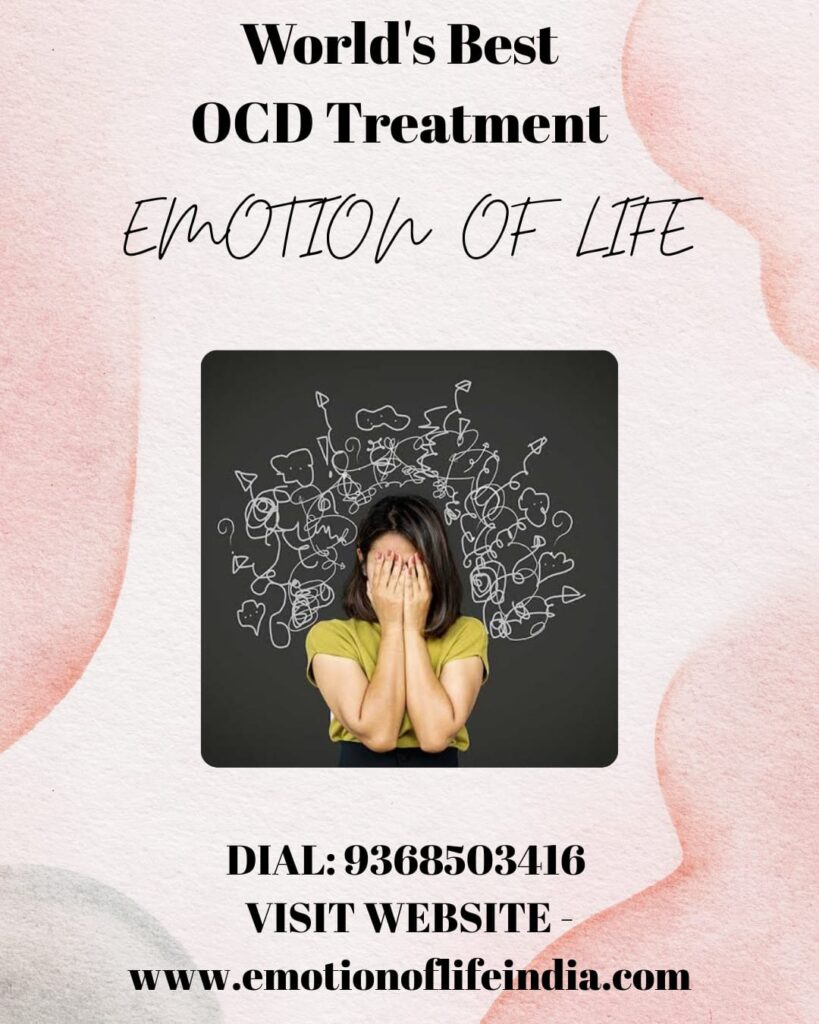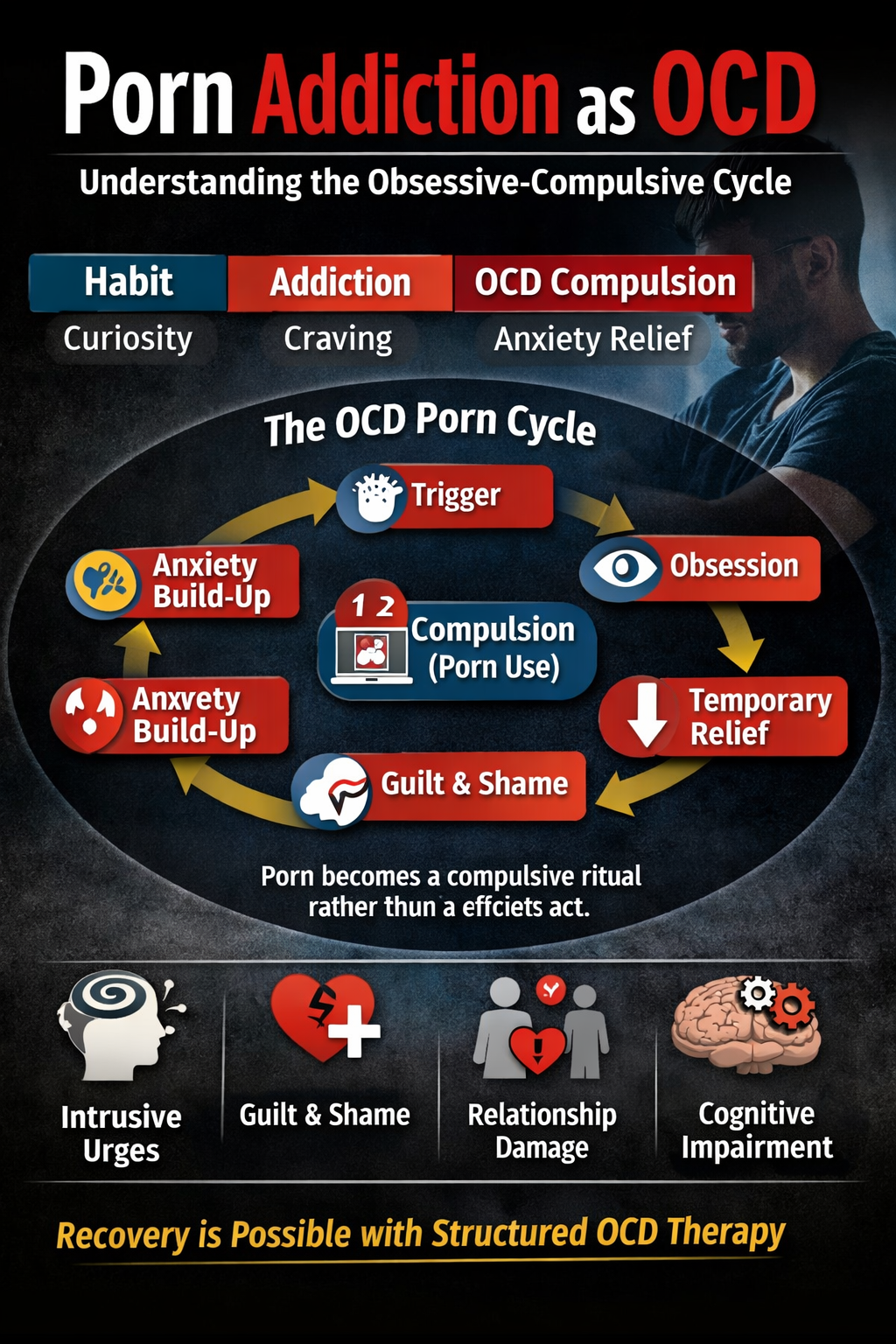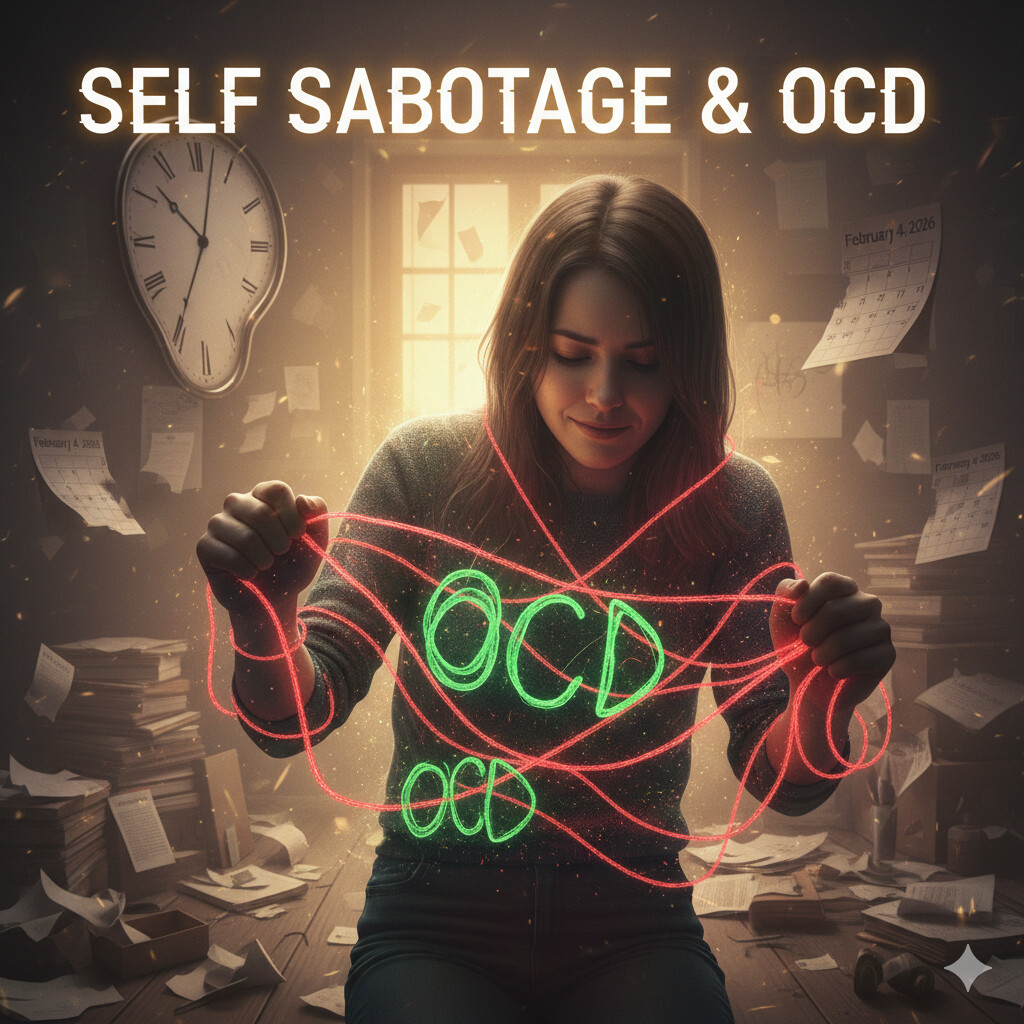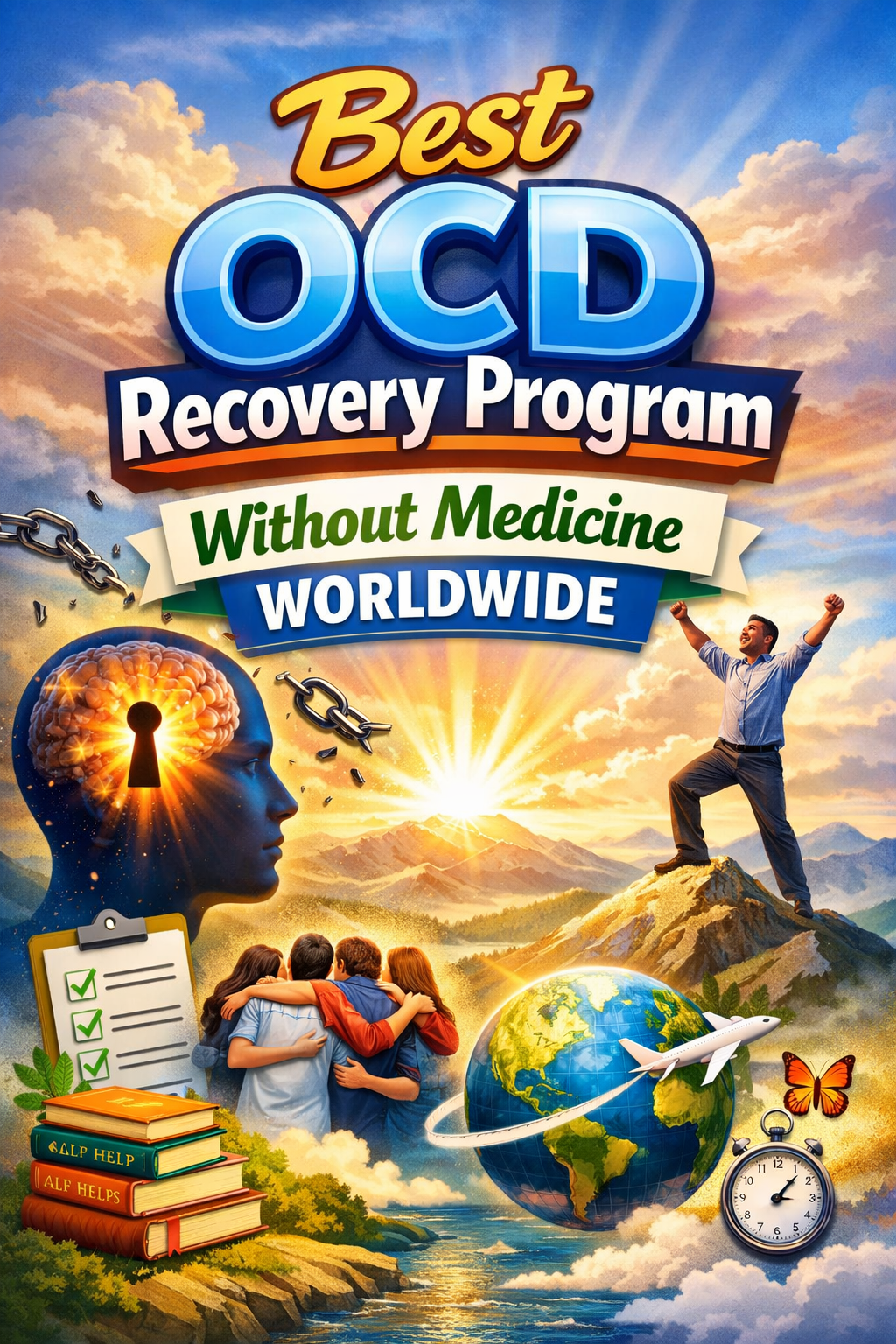Existential OCD Treatment is a distinct and often misinterpreted type of obsessive-compulsive disorder characterized by persistent, philosophical uncertainties regarding existence, meaning, reality, death, or identity. Individuals with this condition experience intrusive thoughts that are ego-dystonic, they feel foreign, unwanted, and frightening, leading to compulsive mental rituals like excessive rumination, thought-checking, reassurance-seeking, and mental neutralizing. Those affected might repeatedly pose questions such as “Do I truly exist?” or “What if my life lacks meaning?” Although such inquiries are typical in occasional philosophical contemplation, for individuals with existential OCD, they become overwhelming, uncontrollable, and significantly impair daily functioning.
Existential OCD Treatment manifests in cycles of intrusive philosophical uncertainties followed by attempts to stop the resulting anxiety. The brain seeks definitive answers to fundamental questions that are inherently ambiguous, creating an impossible need for certainty. If one cannot definitively prove their existence or the authenticity of their values, they may find themselves trapped in a cycle of constant verification and analysis that never yields satisfaction. Key concepts such as existential anxiety, intrusive thoughts, and OCD-related rumination highlight this phenomenon: what starts as a common existential concern turns pathological when it incites compulsive mental behaviors and consumes excessive amounts of time, adversely impacting relationships, work performance, and emotional health.
The nature of existential OCD can be paradoxical; individuals may seem deeply contemplative or spiritual, yet they experience profound distress beneath the surface. Unlike genuine philosophical exploration, which fosters curiosity and enrichment, existential OCD constricts thinking into repetitive questions that aim to eliminate doubt rather than seek understanding. This questioning is driven not by a desire for insight but by a need to alleviate fear. The answers feel fleeting, leading individuals back into the cycle of doubt. Recognizing this difference is crucial for compassionate treatment, with the goal being to alter one’s relationship with uncertainty rather than eliminate profound questions from life.
Understanding Existential OCD necessitates recognizing both the types of thoughts involved and the processes they trigger. The content commonly addresses fundamental philosophical issues like existence (“Do I exist?”), consciousness (“Am I awake or dreaming?”), morality and meaning (“Does life have a purpose?”), identity (“Am I the same person I believe I am?”), and death (“Will I or my loved ones cease to exist?”). However, the process that transforms these themes into a disorder involves spontaneous intrusive thoughts interpreted as indications of a dire reality. Individuals may engage in mental rituals, seek reassurance from others, avoid activities that provoke existential thoughts, or continuously check their perceived reality through repeated testing. While these behaviors may provide brief relief, they further entrench the cycle of compulsivity.
Symptoms of Existential OCD
Symptoms of existential OCD can initially appear minor yet intensify over time. Individuals often report starting their day with a distressing thought such as, “What if I’m dead and unaware?” followed by extensive analysis of their sensations to disprove it. Central to this is the compulsive nature of mental checking: revisiting memories to confirm a sense of continuity, replaying conversations to ensure one’s beliefs align with actions, or conducting philosophical “tests” to attain assurance about one’s reality. Compulsions can be mentally based (like counting or repeating prayers) or behaviorally driven (like avoiding mirrors or limiting philosophical literature). Emotionally, individuals endure high levels of anxiety, feelings of shame associated with their thoughts, and sometimes depression stemming from the exhausting mental effort. This can lead to social withdrawal, concentration difficulties, sleep disturbances, and a decline in work or academic performance.
Causes of Existential OCD
- Many individuals with existential OCD demonstrate a low tolerance for uncertainty, exhibit perfectionistic or black-and-white thinking, and have a strong need for absolute answers.
- Cognitive distortions, such as the belief that thought equates to reality, inflated responsibility, and hyperawareness of potential errors, can make abstract philosophical concepts feel menacing.
- Furthermore, cultural or religious backgrounds that frame doubt as immoral may exacerbate the situation.
- Stress, lack of sleep, or significant life changes can heighten the occurrence of existential obsessions.
Impact of Existential OCD
The impact of existential OCD on daily life is often overlooked, as its content can sound “intellectual” or “spiritual.” Nevertheless, the effects are significant:
Treatment for existential OCD is evidence-based and promising when personalized to the specific philosophical content of the obsessions. The mainstay of treatment is CBT, especially when combined with ERP, ACT, and supportive wellness coaching. Each method addresses different aspects of the disorder.
Cognitive Behavioral Therapy (CBT) for Existential OCD Treatment
CBT challenges distorted beliefs and cognitive fusion. It aids individuals in recognizing the thought patterns assigning emotional weight to their existential fears. Therapists collaborate with clients to identify cognitive distortions like black-and-white reasoning (“If I can’t prove meaning absolutely, life is worthless”), catastrophic interpretations of uncertainty, and confusion between thoughts and identity. Unlike purely philosophical debates, CBT emphasizes practical experimentation, for instance, actively participating in valuable activities even when doubt persists, showing that meaningful experiences occur regardless of certainty. CBT also targets safety behaviors and thought patterns, like mental checking and reassurance-seeking that reinforce OCD.
Exposure and Response Prevention (ERP) for Existential OCD Treatment
ERP diminishes the anxiety-compulsion link through graded exposure to uncertainty. It serves as the behavioral change mechanism for existential OCD. Given that the primary fear revolves around uncertainty regarding existence, identity, or meaning, ERP entails consciously exposing oneself to situations or thoughts that trigger existential doubts and refraining from the mental rituals typically employed to alleviate anxiety. Initial exposures could involve reading a philosophical text that stirs doubt and intentionally experiencing discomfort without attempting to resolve it mentally. More advanced exposures might consist of discussing existential subjects with a trusted friend or partaking in creative pursuits that reflect meaning in action (such as volunteering) while resisting the urge to analyze.
Acceptance and Commitment Therapy (ACT)
ACT fosters acceptance and values-driven behavior. It is particularly beneficial for existential themes as it tackles meaning and values directly. ACT promotes psychological flexibility, allowing individuals to recognize their thoughts and feelings without becoming fused to them while committing to actions that align with their core values. For someone with existential OCD, ACT shifts the struggle from “I must eliminate existential doubt” to “I can lead a fulfilling life even with questions.” Exercises include cognitive defusion (saying intrusive thoughts in amusing voices or labeling them simply as “thoughts”), practicing mindfulness, and clarifying values to help clients prioritize what is genuinely important.
Wellness Coaching for Existential OCD Treatment
Enhances recovery by establishing a supportive life philosophy and routines that stabilize mood and focus. Coaches assist clients in creating consistent schedules incorporating adequate sleep, regular exercise, balanced nutrition, social interactions, and daily practices such as brief mindfulness or gratitude exercises. For those with existential OCD, wellness coaching may also involve pursuing meaningful projects like mentoring, creative endeavors, community service that provide tangible experiences of purpose. Coaches facilitate the gradual return to previously avoided activities, devise strategies for preventing relapse, and aid clients in cultivating hobbies and relationships that help shift their identity away from the “OCD self” towards a complete sense of self.
Personality Dynamics Course-Correction
Traits like perfectionism, intolerance of uncertainty, moral rigidity can exacerbate existential obsessions. Therapy gently explores life narratives to reveal how family expectations or cultural messages have contributed to a stringent need for certainty or moral cleanliness. Through narrative work and cognitive therapy, clients can learn to redefine their internal scripts: transforming perfectionism into a strength balanced by self-compassion; turning moral sensitivity into ethical engagement rather than debilitating self-criticism. This deeper therapeutic process helps prevent mere symptom substitution and fosters long-term resilience.
Developing Healthy Coping Mechanisms
Rather than engaging in ritualized mental reviewing or compulsive philosophical searches, clients learn grounding methods, paced breathing to calm anxiety responses, and time-limited reflective practices to contain rumination. Behavioral alternatives, like scheduling dedicated “philosophy time” to contain unproductive ruminations or participating in action-oriented coping like volunteering, creative endeavors, physical exercise provides clients with experiential evidence that meaning can be enacted even amid uncertainty. Social experiments, such as sharing concerns with a trusted friend and then consciously abstaining from seeking further reassurance, can help break the cycle of compulsive reassurance.
Fostering Emotional and Mental Health
The debilitating shame, loneliness, and spiritual confusion often accompanying existential OCD necessitate emotional work that emphasizes self-compassion, processing fears of meaninglessness, and mending social connections. Group therapy or peer support can be exceptionally healing: hearing others vocalize similar intrusive doubts normalizes the experiences and lessens feelings of isolation. Therapists may incorporate skills for emotional regulation, trauma-informed practices where relevant, and educate clients about the nature of thoughts and memory to demystify their experiences. As emotional regulation strengthens, intrusive thoughts diminish in urgency, allowing individuals to regain their capacity for connection and presence.
Success Story – I of overcoming Existential OCD Treatment
Radhika, a 27-year-old literature student from Mumbai, had always been a deep thinker. But when she developed Existential OCD, her curiosity turned into torment. She couldn’t stop obsessing over questions like “What if life has no purpose?” or “Am I even real?”. Instead of enjoying her classes, she would spend hours stuck in her head, spiraling into rumination. Conversations with friends became unbearable because every small trigger would lead her back to endless doubt and anxiety.
Over time, Radhika’s condition worsened. She avoided reading books, withdrew socially, and spent most of her day seeking reassurance online. Even when reassured, the relief lasted only minutes before another intrusive thought took over. She felt exhausted, hopeless, and detached from her life.
When Radhika joined our structured recovery program at Emotion of Life, she was introduced to a blend of CBT, ERP, and ACT. Through Cognitive Behavioral Therapy, she learned to identify distorted thought loops and challenge her compulsive rumination. ERP sessions exposed her to triggering existential questions but helped her resist reassurance-seeking, allowing her to build tolerance for uncertainty. ACT encouraged her to accept her thoughts without fighting them, redirecting her energy into meaningful actions like writing and reconnecting with friends.
After 4 months of consistent therapy and wellness coaching, Radhika reported a 85% reduction in obsessive rumination. She now spends her time pursuing her passion for poetry, accepting that unanswered questions about life don’t need to control her happiness. Her transformation highlights that recovery is possible with the right guidance and persistence.
Success Story – II of overcoming Existential OCD Treatment
Aarav, a 32-year-old IT professional from Bangalore, started experiencing Existential OCD after a stressful breakup. What began as normal reflection on life’s meaning soon escalated into obsessive worry about existence itself. He constantly asked himself, “What if none of this is real?” or “What if I never find true purpose?”. These thoughts didn’t feel like curiosity, they felt like traps. He spent sleepless nights on the internet, reading philosophy forums and trying to “solve” reality, yet nothing gave lasting peace.
At work, Aarav’s concentration dropped drastically. He re-read emails multiple times, fearing he wasn’t fully “present” when writing them. His friends noticed he had grown withdrawn, and he confessed feeling like a stranger to himself. Anxiety attacks became frequent, and he feared he was “losing his mind.”
When Aarav reached out to Emotion of Life, his personalized program included ERP, CBT, and lifestyle-focused wellness coaching. In ERP, Aarav was gradually exposed to his biggest fears reading philosophical texts or sitting quietly with intrusive questions while resisting the urge to mentally “solve” them. CBT helped him restructure catastrophic interpretations of his thoughts, while ACT guided him to live by his values, not his fears. Wellness coaching focused on exercise, mindfulness, and balanced routines, which strengthened his resilience.
After 5 months of therapy, Aarav experienced an 95% improvement in functioning. He returned to his hobbies, reconnected with friends, and performed confidently at work again. Most importantly, he learned to live with uncertainty without letting it dominate his mind. Aarav now views his journey as a growth experience, where healing came not from “finding answers” but from living fully despite the doubts.
FAQ
- How is Existential OCD different from normal philosophical thinking?
The key difference is distress and compulsivity. Normal philosophical reflection is open and enriching, while Existential OCD creates paralyzing doubt, anxiety, and a constant need for certainty. - What causes Existential OCD?
Existential OCD is thought to arise from a mix of psychological factors. High intolerance of uncertainty, perfectionism, and overactive error-monitoring in the brain often contribute. Stressful life events, cultural or religious influences, and personality traits like overthinking can also trigger or worsen the condition. - Can Existential OCD go away on its own?
Existential OCD rarely disappears without treatment. While symptoms may fluctuate, untreated OCD tends to persist and can worsen under stress. Professional therapy helps break the cycle of obsessions and compulsions, giving individuals long-term relief and tools to manage future triggers. - How can someone with Existential OCD improve emotional health?
Improving emotional health involves self-compassion, mindfulness practices, balanced routines, and building strong social support. Techniques like grounding exercises, journaling, and value-based living reduce anxiety and help individuals reconnect with meaningful activities rather than being stuck in obsessive thought cycles. - When should I seek professional help for Existential OCD?
Seek help if existential thoughts consume more than an hour a day, cause significant distress, or interfere with work, studies, or relationships. Early intervention with a therapist at Emotion of Life increases the chances of recovery and reduces long-term suffering.
Conclusion on Existential OCD Treatment
In conclusion, while existential OCD converts profound human inquiries about meaning into a confining spiral of doubt, it is treatable. By merging CBT to recalibrate distorted thinking, ERP to break compulsive routines, ACT to encourage acceptance and value-guided living, wellness coaching to stabilize everyday life, personality work to amend ineffective habits, and practical coping skills to manage daily stress, individuals can reclaim a life where philosophical questions coexist with joy, connection, and purpose. Recovery is less about eradicating uncertainty and more about discovering how to live meaningfully alongside it. If overwhelming existential concerns are shrinking your world, reaching out for compassionate, OCD-centered help at Emotion of Life represents a courageous and effective first step towards a fuller life.
Call now: +91 9368503416
Website: www.emotionoflife.in
Email: info@emotionoflife.in
Book Now.











